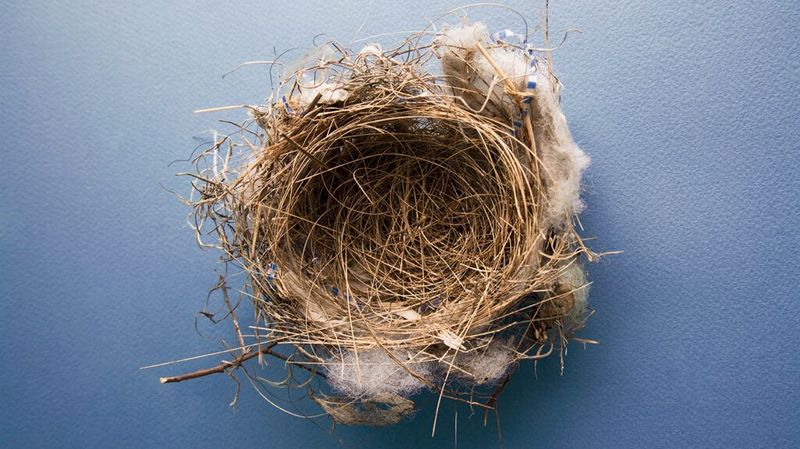20 Quiet Struggles Parents Face Because Of Their Adult Children
Parenting doesn’t end when your kids turn 18. In fact, for many moms and dads, the emotional labor deepens once their children become adults—just in different, quieter ways.
From watching them make painful choices to feeling unexpectedly lonely, these are the struggles parents don’t always talk about—but many know all too well.
Here are 20 silent struggles parents face because of their grown children—and why it’s okay to name them.
1. Watching Your Child Make Decisions You Wouldn’t Choose for Them

You know that moment when you want to swoop in and save the day, but you can’t? Yeah, that’s parenting grown-ups for you. They’re making decisions left and right, and sometimes, it’s like watching a train about to derail. Your protective instincts kick in, but stepping in could do more harm than good. So, you watch, silently hoping they’ll find their way. It’s tough, especially when you remember the scraped knees you used to kiss better.
Now, it’s all about offering advice from the sidelines, hoping they remember the lessons you taught them. You wonder if they’ll make the right call, understanding that mistakes are part of growing up. It’s a bittersweet dance between letting go and holding on, trusting that they have the tools they need.
And when they do succeed, oh, the pride is worth every moment of silent worry. It’s a journey of patience and love.
2. Feeling Unneeded After Years of Being Their Center

Remember those days filled with constant chatter, endless questions, and a never-ending list of needs? Now, it’s eerily quiet. The kids have moved on, created their own lives, and suddenly, your phone doesn’t buzz as often. It’s strange, like being the star of a show that’s wrapped up its final season.
You find yourself yearning for those chaotic days, even if you were too tired to enjoy them fully back then. The silence is deafening, and sometimes, you feel like a background character in their new story. It’s a shift, feeling unneeded after years of being their universe.
But as tough as it is, there’s a beauty in watching them spread their wings. They’re forging their paths, and perhaps, redefining your role is part of the journey. Embrace the peace, and maybe, just maybe, find joy in the quiet moments you now have to rediscover yourself.
3. Being Financially Drained from Still Supporting Them

Ah, the dream of financial freedom, sometimes it’s just that—a dream. Kids grow up, but often, their financial independence doesn’t follow suit. Whether it’s covering rent, unexpected bills, or “just one more loan,” the financial tether seems unbreakable.
It’s a tough spot to be in because you want to help, but there’s a limit to how much you can stretch without snapping. Retirement plans get pushed, vacations postponed, because being a parent doesn’t come with an off switch.
You’re left balancing your needs with theirs, hoping they’ll soon find stability. It’s a delicate dance of providing support without enabling dependence. Yet, deep down, you know that this, too, is temporary, and they’ll eventually find their footing. Until then, it’s a balancing act, keeping love and practicality in check as you navigate this financial maze together.
4. Worrying About Their Mental Health—But Being Kept at a Distance

You sense it, that something’s off, but your grown child won’t open up. It’s like a wall has been erected, and you’re left on the other side, peeking through the cracks. The maternal instinct hasn’t faded; it’s just met with new challenges, like respecting their space.
You’d give anything for them to confide in you, to share their burdens like they used to with scraped knees and broken toys. But now, it’s more complex. They might not want to worry you or admit they’re struggling.
So you wait, offering quiet support, hoping they know you’re there without pushing them away. It’s hard, feeling helpless, but trust is a two-way street. You lean on patience, praying they’ll let you in when they’re ready. Until then, your love acts as a silent support, a gentle reminder that you’re always a call away.
5. Missing Them Deeply but Not Wanting to “Bother” Them

The empty room still echoes with laughter that’s now a distant memory. You miss the daily chaos, the hugs, and even the arguments. But reaching out feels like you’re intruding on their new life, their independence.
You find yourself hesitating to call, not wanting to be the “clingy” parent. It’s an emotional tug-of-war, balancing your need to connect with their need for space.
Yet, the longing doesn’t diminish. You hope they know how much they mean to you, that a simple “hi” would make your day. It’s a lesson in restraint and understanding, hoping they’ll reach out when they can. And when they do, the joy is palpable, a reassurance that the bond remains strong despite the miles.
6. Grieving the Version of Your Relationship That Used to Exist

Memories flood back, moments captured in time when they’d share every detail of their day. Now, it’s surface-level updates and hurried conversations. It’s like reading a book but skipping every other chapter.
You mourn the closeness, the connection that seemed unbreakable. It’s a new reality, one where they’ve built lives that don’t always include you.
It’s not that they don’t care; it’s just different, and adjusting to this new dynamic can be tough. You find solace in memories, realizing that change is part of growth. And while the relationship has transformed, it doesn’t mean it’s lost. It’s evolving, just like they are, and sometimes, nostalgia fills the gaps left by change.
7. Feeling Guilt for Past Mistakes—Even if You’ve Apologized

Ah, the haunting whisper of “what if?” You’ve made mistakes, maybe even apologized, but the guilt lingers like a stubborn shadow. You replay scenarios, wondering if their distance is because of something you did or didn’t do.
Parenting doesn’t come with a manual, and hindsight is 20/20. You’re human, flawed, just like them. It’s easy to dwell on past missteps, convinced they’re the reason for any rift.
But guilt is a heavy burden, one that doesn’t have to define you. Forgiveness, especially of oneself, is a process. They may not hold it against you, even if you’re convinced otherwise. Remember, relationships evolve, and so do people. Hold onto the hope that they see your intentions, even if your actions weren’t perfect.
8. Being Shut Out of Their Lives Entirely

Estrangement is a pain that defies description. It’s like being locked out of a house you helped build, a place once filled with warmth and love. Now, the silence is all-consuming, and the void seems impossible to fill.
You’re left with questions that have no answers, clinging to memories that seem to fade with time. The whys and hows replay endlessly, a melancholic loop that offers no respite.
It’s a grief of its own kind, mourning the living, missing the laughter and connection that once was. But amid the sorrow, you hope for reconciliation, for the door to open just a crack. Until then, you hold onto love, a silent beacon in the darkness, praying it guides them back to you.
9. Worrying About Whether They’ll Be Okay When You’re Gone

It’s a fear that grips your heart—the thought of not being there to catch them when they fall. You’ve been the safety net, the constant presence, and the idea of them navigating the world without you is terrifying.
You wonder if they’ll be okay, especially if they struggle with stability or health. It’s a worry that lurks in the quiet moments, a whisper that never quite fades.
But there’s a part of you that knows they’re stronger than you think, that you’ve instilled resilience and courage in them. You hope they’ll remember your wisdom, your love, and that it will guide them even when you’re not there to hold their hand. It’s a leap of faith, trusting they’ll carry your lessons forward.
10. Realizing You Can’t Fix Their Pain Anymore

Once, you were the superhero, the fixer of all things broken—be it toys or broken hearts. Now, you’re on the sidelines, watching them grapple with challenges you can’t solve.
It’s a helpless feeling, wanting to take their pain away but knowing it’s part of their journey. You offer comfort, advice, but ultimately, the healing is theirs to do.
This realization is tough, a reminder of the limits of parental power. Yet, through it all, you find ways to show love, offering a safe haven when the world gets too tough. And sometimes, knowing you’re there is enough, providing solace in the knowledge that they’re not alone on their path.
11. Getting Judged for Trying to Help

How many times have you tried to help, only to be met with eye rolls or sighs? Intentions get misread, and suddenly, you’re the one in the wrong. It’s like walking a tightrope, balancing between offering guidance and overstepping boundaries.
You want to support them, but fear of judgment holds you back. Maybe your advice is seen as meddling, your help as an intrusion. It’s frustrating, being misunderstood when all you want is to make their path a little smoother.
But here’s the thing—love isn’t always clear-cut. Sometimes, stepping back is the best way to move forward. Trust that your intentions will shine through eventually, even if it takes time. Remember, relationships are a two-way street, and understanding is a journey you both must take.
12. Still Being Their Safety Net—With No Retirement in Sight

Retirement was supposed to be your time, a phase to relax and enjoy the fruits of your labor. Yet, here you are, still holding the safety net while balancing on the wire yourself.
The nest might be empty, but the needs continue. Whether it’s financial support or babysitting grandkids, the demands don’t just disappear. It’s a new kind of hustle, one that keeps you on your toes.
But you find purpose in this role, even if it wasn’t the retirement you envisioned. You adapt, finding joy in the moments you get to spend with them, knowing that this, too, shall pass. It’s a testament to the enduring nature of love, redefining what it means to be there, even when you thought you’d be somewhere else.
13. Holidays That Don’t Look How You Imagined

Holidays used to mean laughter, a full house, and traditions. Now, it’s a patchwork of brief visits, canceled plans, and sometimes, an empty chair at the table.
You envisioned family gatherings, but reality often paints a different picture. Life pulls them in different directions, and you’re left bridging the gap between expectation and reality.
It’s hard not to feel a pang of disappointment, but you cherish the moments you do get, even if they’re fleeting. You learn to adapt, creating new traditions, finding joy in unexpected places. And sometimes, the quiet moments hold their own magic, reminding you that love is present, even when the room isn’t full.
14. Feeling Replaced by Their Partners, Careers, or Friends

Once, you were their world, but now, they’ve built new ones with partners, careers, and friendships. It’s a joy to see them thriving, yet sometimes, you can’t help but feel a little replaced.
It’s a natural progression, this shift in importance, but it can still sting. You wonder where you fit in, how to remain a part of their busy lives. It’s a dance of finding balance, being supportive while nurturing your own sense of belonging.
But remember, your role is irreplaceable, even if it feels overshadowed. You’ve laid the foundation for their happiness, and that’s a legacy that endures. Find comfort in knowing that their success is a testament to your love and support.
15. Walking on Eggshells to Avoid Triggering Old Wounds

Conversations that once flowed freely now feel like navigating a minefield. You’re cautious, choosing words carefully to avoid reopening old wounds. It’s a delicate dance, balancing honesty with sensitivity.
You want to connect, but fear of saying the wrong thing holds you back. It’s a challenge, maintaining the closeness you once shared while respecting new boundaries.
But take heart in knowing that growth often requires discomfort, and sometimes, the bravest conversations are the ones that lead to healing. Trust in the bond you’ve built, knowing that love is resilient, capable of weathering even the most sensitive of storms.
16. Not Knowing Your Grandchildren as Well as You’d Hoped

Grandparenting was supposed to be a second chance at all the things you missed. But life has a way of complicating even the best-laid plans. Distance, busy schedules, and different parenting styles create barriers you didn’t anticipate.
You imagined bedtime stories, birthdays, and endless adventures, but the reality is often less idyllic. It’s a new kind of heartache, wanting to forge bonds but finding the paths difficult to tread.
Yet, every moment you do get is precious, a chance to share your love and wisdom. It’s about making the most of the time you have, cherishing the small victories and connections. Love finds a way, even if it’s not how you envisioned.
17. Struggling to Redefine Your Purpose

Parenting defined you for so long that when the nest empties, it leaves a void. You’re faced with the question: “What now?” It’s a journey of rediscovery, finding purpose beyond being “mom” or “dad.”
The world feels different, and so do you, as you navigate this new chapter. It’s an opportunity to explore interests that once took a backseat, to pursue dreams you put on hold.
This transition isn’t without its struggles, but it’s also a chance to grow, to redefine who you are outside of parenthood. Embrace the possibilities, knowing that purpose evolves just as you do—always moving, ever changing.
18. Loving Them Endlessly—Even When It Hurts

Love is complicated—especially when it stretches across years, miles, and sometimes, misunderstandings. It’s an endless reservoir, a force that doesn’t fade even when things get tough.
You hold onto memories, moments that define your bond, even as time and distance pull you apart. It’s a testament to the strength of the connection between parent and child, unyielding and unwavering.
Even when it hurts, even when they make choices you don’t agree with, your love remains a constant. It’s not always easy, but it’s the heart of parenting, the core that keeps you going. And in that love, you find strength to face each day, knowing it transcends any hurt.
19. Adapting to Ever-Changing Technology

“Why won’t this work?” Technology evolves so rapidly that keeping up can feel daunting, especially for parents who didn’t grow up in the digital age.
This struggle is not merely about understanding devices but also about maintaining a connection in a tech-driven world.
You find yourself in a role reversal, relying on your children for guidance. As you attempt to bridge this technological gap, you also face feelings of inadequacy. Learning becomes a shared journey, fostering unexpected bonding moments.
20. Navigating Shifts in Family Traditions

Family traditions hold emotional significance, yet they often evolve as children become adults. You feel a sense of loss when your adult children choose new ways to celebrate or create their own traditions. This transition can be bittersweet, as cherished rituals give way to fresh customs.
You reminisce about past gatherings filled with laughter and togetherness. Yet, you must also embrace change and find joy in new experiences.
Adapting to these shifts requires flexibility and open-heartedness, creating a family dynamic that honors both old and new traditions.







